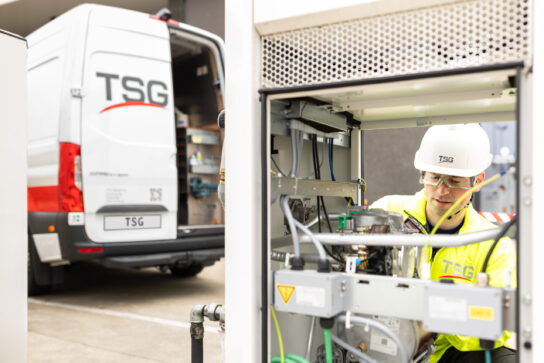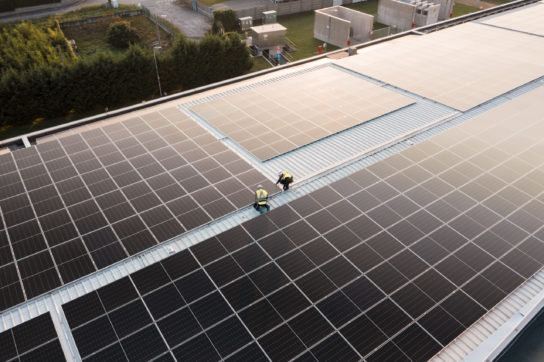The facts
In April 2022, UK new-car registrations were down nearly 16% when compared to the same month last year, but the market share for electric models continues to grow at a very healthy rate. Plug-in models are expected to account for a quarter of all registrations during the year, with pure-electric vehicles representing around one in six new cars appearing on our roads in 2022.
The catalyst for this dramatic increase in the popularity of electric vehicles (EVs) is primarily attributable to the government’s ban on new petrol and new diesel cars which will come into effect in 2030, with the sale of hybrids being outlawed from 2035.
Subsequently, those in the market for a new car will be presented with a choice of battery-electric vehicles or cars powered by hydrogen, with no fossil fuel options on the table.
But what about the new car buyers of today? There is still much to be done to convince UK motorists to make the switch to electric, as the lack of confidence in the supporting charge infrastructure remains relatively high. Nevertheless, evidence shows that traditional fossil fuel drivers are now at least considering an EV for their next purchase, demonstrating a slight swing in public perception.

The uncertainty
The biggest hurdle motorists have to overcome surrounds the notional ‘range anxiety’, which in actual fact is nothing more than ‘charger anxiety’. The inability to complete a journey without running low or out of energy is a common misconception among EV drivers, due to a potential lack of operational charging facilities en route. In reality, most daily trips are ten miles or less and the likelihood of needing a recharge during their journey is very slim. In addition, the latest range of EVs boasts a mileage range similar to that of equivalent petrol models, when coupled with rapid charging speeds and reduced charging times, EVs are fast becoming a very attractive proposition.

The solution
To address these concerns, there are already schemes in progress such as ‘on the go’ charging, an economical subscription-based programme that is providing EV drivers access to thousands of public chargers in convenient locations. Additionally, EV chargers are now popping up in numerous different public and semi-public places, such as shopping centres, gymnasiums, car parks, hotels and restaurants – this is typically referred to as ‘destination charging’. Whilst there is still a shortage of workplace chargers, employers now recognise that offering charging facilities to their EV-driving employees is a valuable tool for attracting and retaining staff.
Total Cost of Ownership (TCO)
Electric cars are often more expensive to buy than their petrol and diesel-engine counterparts, and many cost more to insure. However, the total cost of ownership comprises far more elements than the initial outlay – it is important to consider mileage costs, road tax and the service/maintenance charges.
On average, the cost per electric mile is one third of unleaded petrol, however, in recent weeks the exorbitant rise in fuel cost has seen that figure drop to one fifth – meaning every mile covered in a petrol vehicle will cost five times more than an EV. It is worth noting that purchasing EV energy via a monthly subscription plan is far more cost-effective than adopting a pay-as-you-go approach.
As with fuel, so it is with servicing: electric vehicles generally work out much cheaper to service and maintain than the equivalent traditional models, largely because they have fewer moving components and fewer parts prone to wear.
Currently, fully electric cars are ‘zero-rated’ for vehicle excise duty (road tax), whereas combustion engine cars are taxed in line with their emissions and range from £165 to over £600, depending on the grams per kilometre of CO2 produced.
As car buyers become increasingly aware of the time limit on internal combustion engines, the depreciation of these vehicles is gathering pace. Meanwhile, EVs are gaining traction in the marketplace and their residual values are growing stronger by the day, making them a far more lucrative investment.
Taking everything into account, it is easy to see that the EV is a clear winner in the TCO stakes and should be forgiven for its higher purchase price, as over the EV’s lifetime there are generous savings to be made.

Looking to the future
The global EV market share has taken a tremendous leap forward in the past decade, and this trend is expected to gather pace as world leaders strive to achieve the ambitious ideal of net zero.
The current EV charging infrastructure is being stretched to capacity to keep abreast of this growth, however, new technological developments are furthering the evolution of the UK’s charging facilities in a very ‘electrifying’ way.


Wireless charging
Wireless car charging works in a similar way to the wireless smartphone charger, only on a much bigger scale. In both cases, the technology required is called inductive charging.
Whilst wireless EV charging is still in its infancy, it is already being piloted in car parks, along bus routes and on taxi ranks across the UK, and the results so far have been very promising.
To carry out this trial, wireless charging pads were strategically installed in recognised stopping places of a wide-ranging sample of EVs, and the corresponding wireless charging kit was fitted to the vehicles to ensure compatibility. The vehicles need to be parked in such a way that both the transmitter and receiver are in alignment before charging can begin. The energy is then seamlessly transferred through an air gap from the charger to the car.
If this preliminary investigation into the viability of wireless EV charging goes to plan, it is feasible that wireless chargers will be installed into roads and car parks across the land, and the worry of finding the next functional charge point will become a thing of the past.
Driverless cars
Autonomous Electric Vehicles (A-EVs) rely on artificial intelligence to operate with varying degrees of human input. By computing billions of data points each second from an array of sensors, cameras and radar systems, A-EVs can effectively ‘see’ the road and respond to changing conditions or navigate obstacles. Tesla has recently taken this technology to a whole new level, but will electric vehicles ever become truly autonomous? The answer is a resounding yes – with new technologies being developed at an exponential rate, it is simply a case of ‘watch this space’.


Supercapacitors
A supercapacitor, like a battery, is designed to store and release electricity. But rather than storing energy in the form of chemicals, supercapacitors store electricity in a static state, making them far more efficient at rapid charging and discharging energy.
Supercapacitors already exist in cars with regenerative braking systems, thanks to their greater power density than lithium-ion batteries. They store the energy generated whilst braking and then discharge it rapidly upon acceleration.
But is it realistic to believe that the EVs of the future will be powered by supercapacitors, charging from zero to full in a split second? At the moment it is simply a pipedream, but who knows what the future holds, it will be here sooner than we think.
Battery swap
Chinese car manufacturer Nio has introduced a very successful ‘battery swap’ scheme to eliminate lengthy recharge waiting times. In simple terms, car buyers purchase an electric vehicle without a battery, reducing the retail price by thousands of pounds and consequently addressing the higher-price pain point of EVs. Customers then pay a monthly subscription fee for the battery which includes several ‘swaps’.
Instead of plugging in to recharge the battery, motorists simply drive to the nearest Power Swap station and the battery is exchanged for a fully charged power pack. The whole process takes between three and five minutes and then the driver is back on the road.
This game-changing subscription model is not in the UK as yet but is surely a scheme that warrants serious consideration from other major car manufacturers wanting to make their mark on the EV scene.

EV hubs
EV charging hubs are public stations solely dedicated to electric car charging and will benefit the local communities, businesses, commuters and visitors to the area. The concept was derived to provide the ultimate consumer experience to EV drivers who are looking for a fast charge, comfortable surroundings, in a convenient location with ample refreshment and shopping facilities. There are currently only a handful of EV hubs across the UK, however, these sites are forming a template for forecourts of the future.

Alternative fuel - Hydrogen
In the short term, hydrogen is not regarded as a pragmatic opponent to electricity when it comes to everyday cars and vans, as the technology behind it lacks maturity. However, hydrogen prevails over electricity in the haulage industry and public transport sectors such as trains and buses, as it offers a far greater range with much shorter refuel times.
The foremost challenge for the hydrogen economy is finding a viable solution to the problem of storage. At present, hydrogen can be stored as either a compressed gas in high-pressure tanks or as a liquid at -253°C in cryogenic tanks. Both of these methods are considerably more expensive than conventional storage systems for petroleum products.

TSG leads the way
Undoubtedly, electricity is currently blazing a trail in the alternative energies race, and as adoption grows and technology develops, it will become the obvious choice for forward-thinking motorists and businesses alike.
Whatever the future holds, TSG has the expertise to provide a complete end-to-end turnkey EV charge solution, from site survey, design, consultancy and distribution network operator (DNO) connections.
TSG’s UK Director of Electric Business, Michael Mounteney commented “TSG is best placed to deliver the electrical infrastructure to support the EV revolution, by being recognised as the UK’s first choice engineering, procurement and construction (EPC) contractor, regardless of the technology behind it.”
As part of its future growth strategy, TSG is investing in people, systems, technology and processes. TSG is currently holding a nationwide recruitment drive, seeking talented electrical managers and engineers, as well as opening a new TSG Charge head office in the Milton Keynes area.
For more information about TSG and the positions available, visit: https://www.tsg-solutions.com/uk/



